This Microsoft Copilot workshop convinced me that AI can help content creators, here’s how
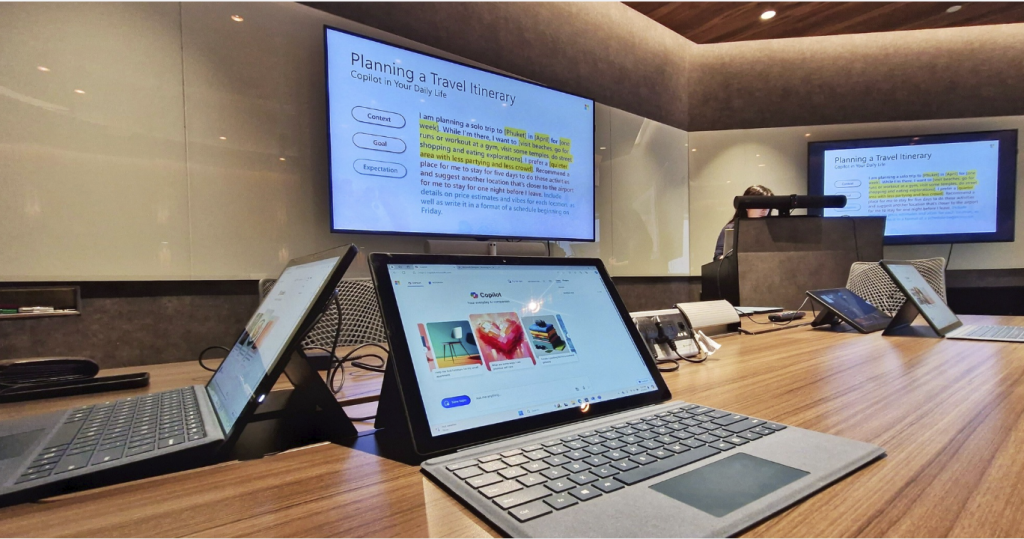
[This is a sponsored article with Microsoft.]
Most of us who use AI chatbots are probably self-taught since they’re meant to be intuitive to use.
You type in your demands, get it to produce something, tweak its suggestions along the way, and improve your prompts over time as you understand what the AI can and can’t do.
It’s straightforward, right?
So, when I was invited to an AI masterclass by Microsoft Malaysia (Microsoft) on using Microsoft Copilot (Copilot), I couldn’t help but wonder: What could they teach me that I didn’t already know?
What I already knew about Copilot
I’ve been familiar with how Copilot works across Microsoft 365 apps, from summarising key discussion points during a Teams meeting to creating sleek pitch decks in PowerPoint.
The idea behind Copilot is to help users increase their productivity, by helping us focus on the work that really matters, instead of the tasks that bog us down.
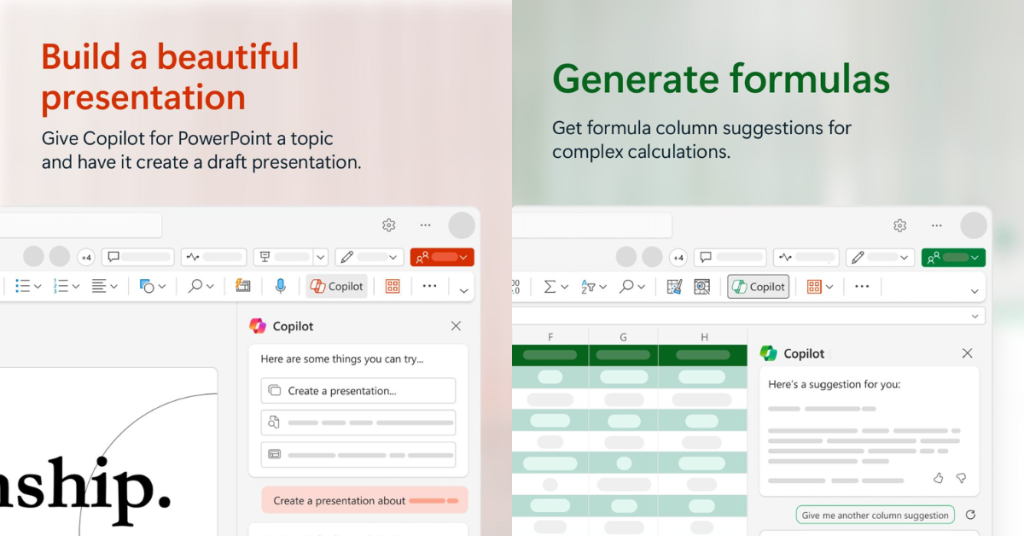
I’ve seen these features highlighted in new Windows laptops, some even with a dedicated Copilot key.
But with Microsoft embedding Copilot so deeply into its ecosystem, I overlooked its own chatbot. The workshop, however, showed me how Copilot could become the go-to productivity assistant for content creators.
What stood out to me from the hands-on session
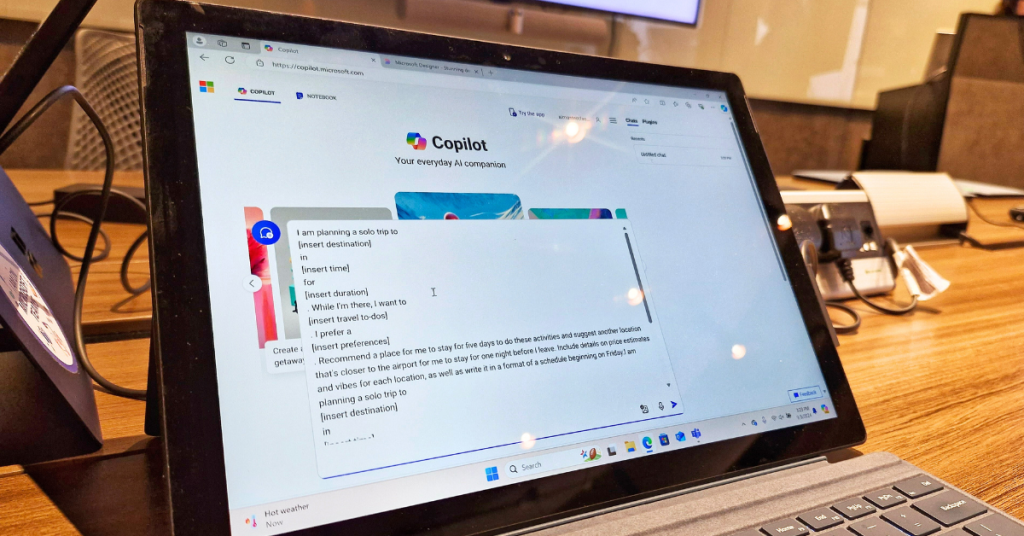
We were set up with Copilot-enabled devices, ready to dive in and get hands-on. We explored various use cases of Copilot, from everyday tasks to those specific to content creators, such as:
- Coming up with recipes from leftovers in the fridge
- Planning events and trips
- Generating posters with Microsoft Designer
- Simplifying complex concepts into easy-to-understand explanations
- Brainstorming headlines and angles for a story
It’s basic stuff, the examples above.
But throughout the demo, Celeste Bolano, Communications Lead at Microsoft Malaysia reminded us of essential prompt-creating tips to get the results we wanted.
She broke it down into three points:
- Always have an action for what you want Copilot to do
- Provide any relevant context or details
- Tailor the delivery for how you want Copilot to craft your response
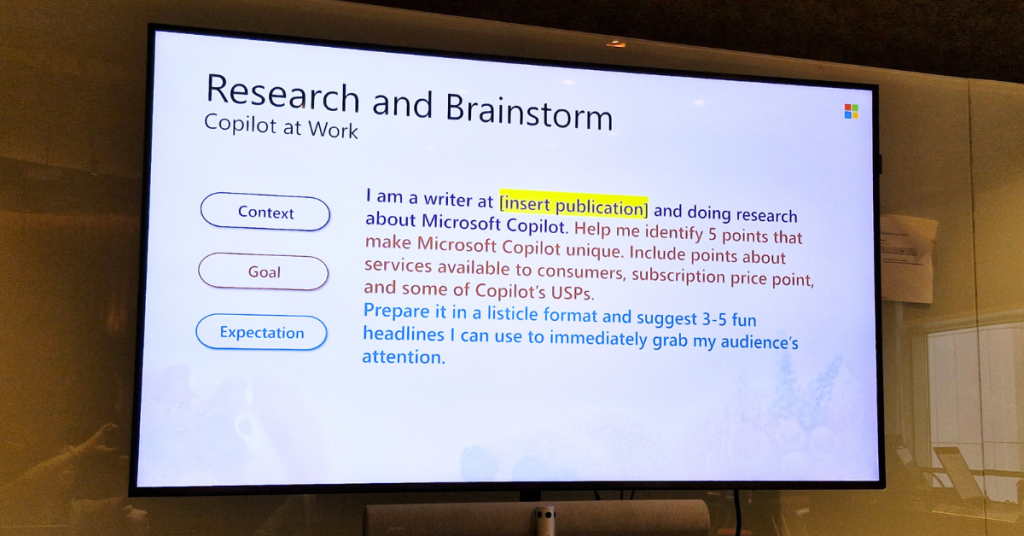
What stood out to me in particular was how detailed Copilot’s content generation was.
When I tested it out for breaking down difficult concepts, not only did Copilot provide the content I needed, but it also included references and links to the sources. This made fact-checking a breeze, ensuring I could verify everything and decide if the AI’s suggestions were accurate.
As a content creator myself, fact-checking is a fundamental best practice, even when AI is involved. This is to ensure that the content we publish is factual and accurate, and this feature made Copilot stand out compared to other mainstream chatbots.
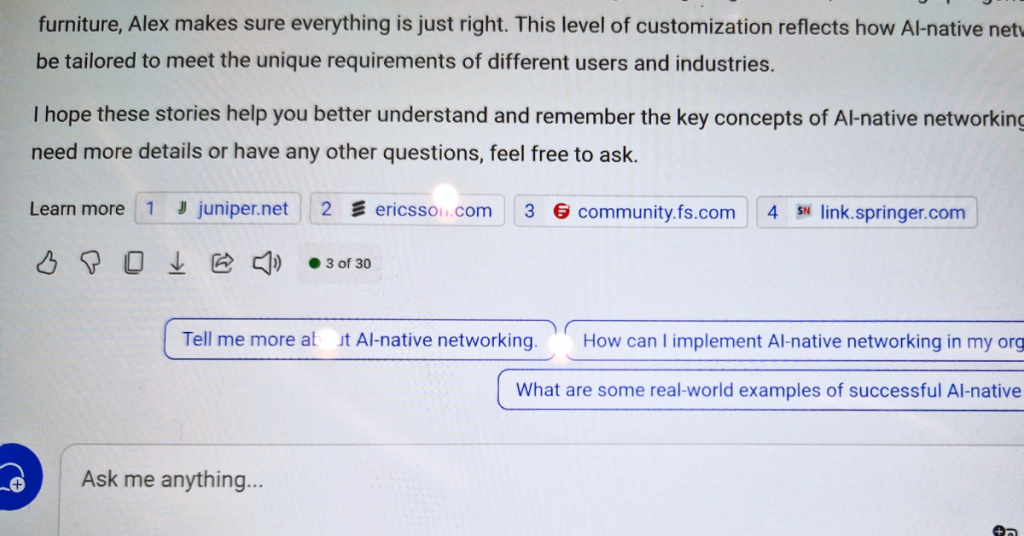
The seamless integration across Microsoft’s ecosystem was also impressive.
In another demo, we used Copilot to plan a party. Taking the event idea and schedule suggested, we could easily transfer everything to Microsoft Designer to create a poster.
The design elements—fonts, vectors, etc.—were customisable, making it a handy tool for event planners or social media marketers needing quick designs that align with their copy.
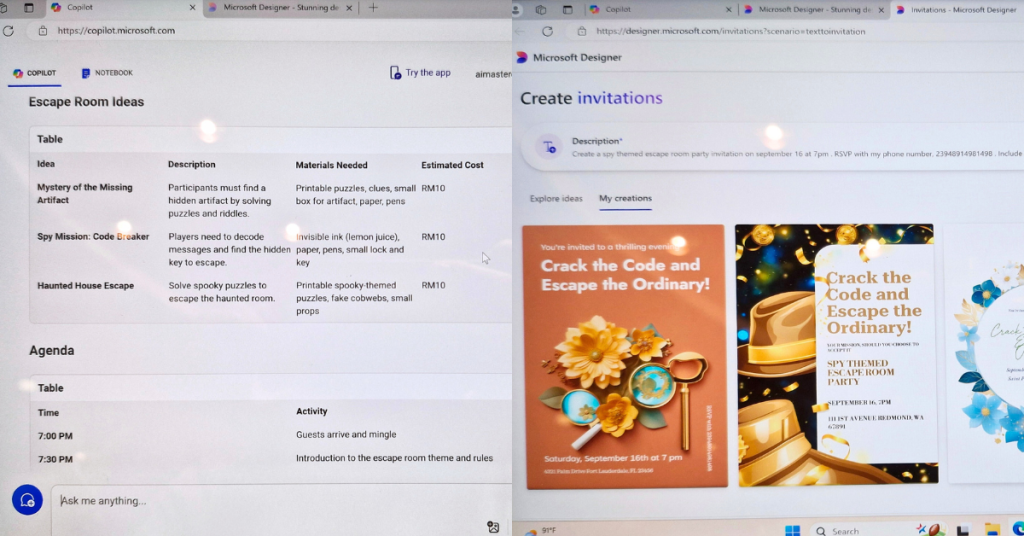
As we played around with the built-in design software, though, one question stuck with me: Are these AI-generated content safe to use?
What Microsoft had to say about using AI safely
AI is often seen as either a game-changer or a potential threat, with people torn between excitement and uncertainty about the implications of using AI.
With ethical and legal concerns in play, could publishing AI-generated content land creators in hot water?
To this, Adilah Junid, Director of Legal and Government Affairs from Microsoft Malaysia told us, “We acknowledge that while transformative tools like AI open doors to new possibilities, they are also raising new questions.”
To elaborate, Microsoft incorporates provenance technology in Copilot and Microsoft Designer, which enables the source and provenance of generated content to be identified. The company also adopts responsible practices when developing its AI tools, as per the publicly released Microsoft Responsible AI Standard.
Understanding the challenges that lie ahead with AI, Adilah shared:
“At Microsoft, we are guided by our AI principles and Responsible AI Standard along with decades of research on AI, grounding, and privacy-preserving machine learning. We make it clear how the system makes decisions by noting limitations, linking to sources, and prompting users to review, fact-check, and adjust content based on subject-matter expertise.”
Adilah Junid, Director of Legal and Government Affairs at Microsoft Malaysia
Stay curious, stay cautious
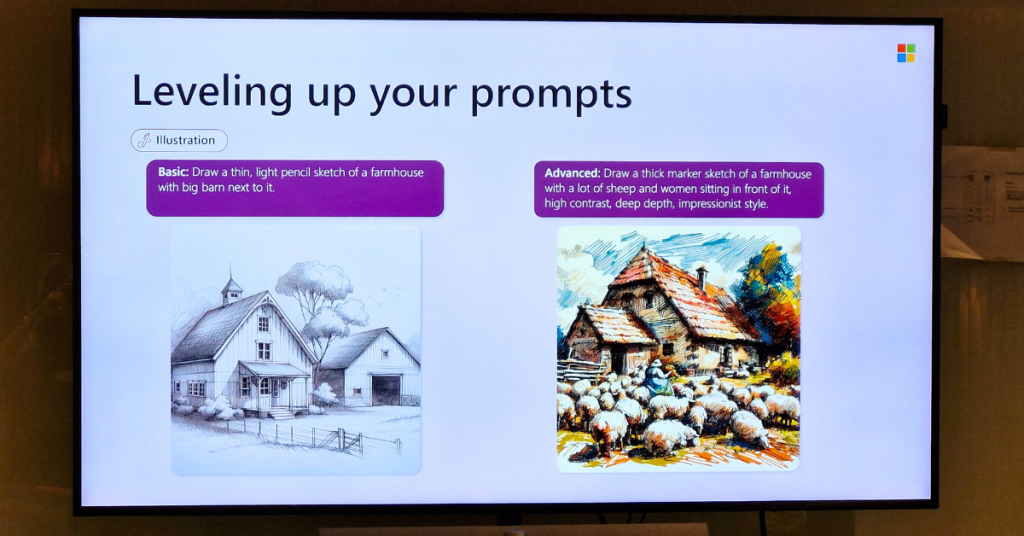
In a recent collaborative release with LinkedIn, Microsoft highlighted in the 2024 Work Trend Index that over 75% of knowledge workers are already using AI at work. This figure is even higher in Malaysia, with 84% of knowledge workers already using AI at work.
For context, knowledge workers are those who apply analytical and theoretical expertise, typically acquired through formal education, to develop products and services.
“Employees, many of them struggling to keep up with the pace and volume of work, say AI saves time, boosts creativity, and allows them to focus on their most important work,” the report detailed. As a writer needing to stay creative and turn ideas into articles, I can relate.
Exploring Copilot revealed just how useful generative AI can be for content creators.
But, as with any new tool, it’s important to use it mindfully and stay aware of its potential impact. The future with AI looks promising, but it’s up to us to steer it in the right direction.
So, if you’re curious, give Copilot a go and see how it fits into your creative process. It’s free to use on browsers like Chrome and Microsoft Edge, the only thing you’ll need is a Microsoft account to get started.
Featured Image Credit: Vulcan Post
This S’porean built a whole brand to solve a challenge in his family’s printing biz
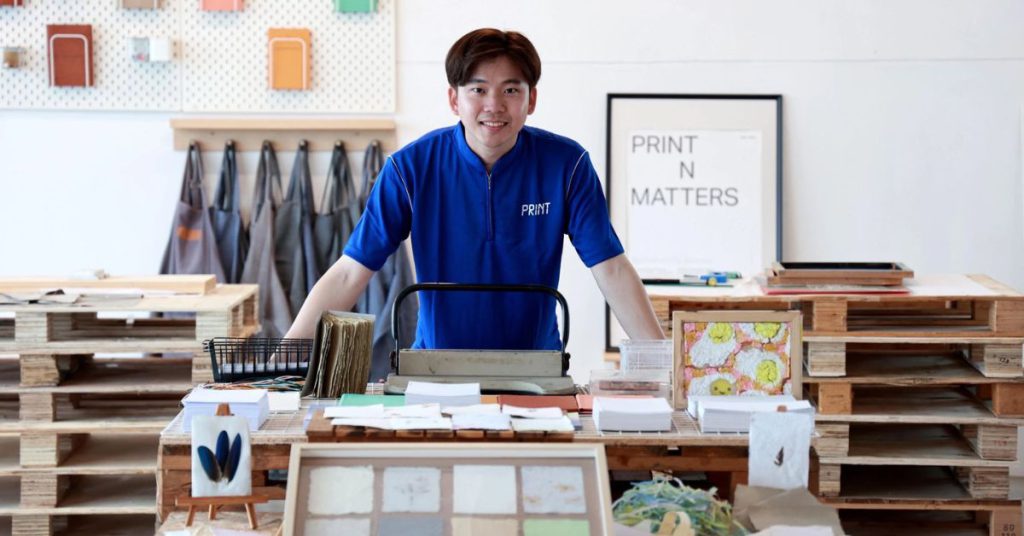
Growing up in a printing factory might sound unusual, but for Marcus, it was his playground. “The staff have known me since I was a kid,” he shared with Vulcan Post, reminiscing how the place holds sentimental value.
As the Creative Director of Print N Print—a family-run printing company founded in 1990 by his parents—Marcus saw an opportunity not just to continue his family’s legacy but to modernise it with an eco-friendly twist.
So, at 29 years old, he turned his passion for paper into something truly impactful with his business, Print N Matters.
But it’s not just nostalgia that drives Marcus. He’s always had a creative edge, having worked in various design agencies before founding Print N Matters.
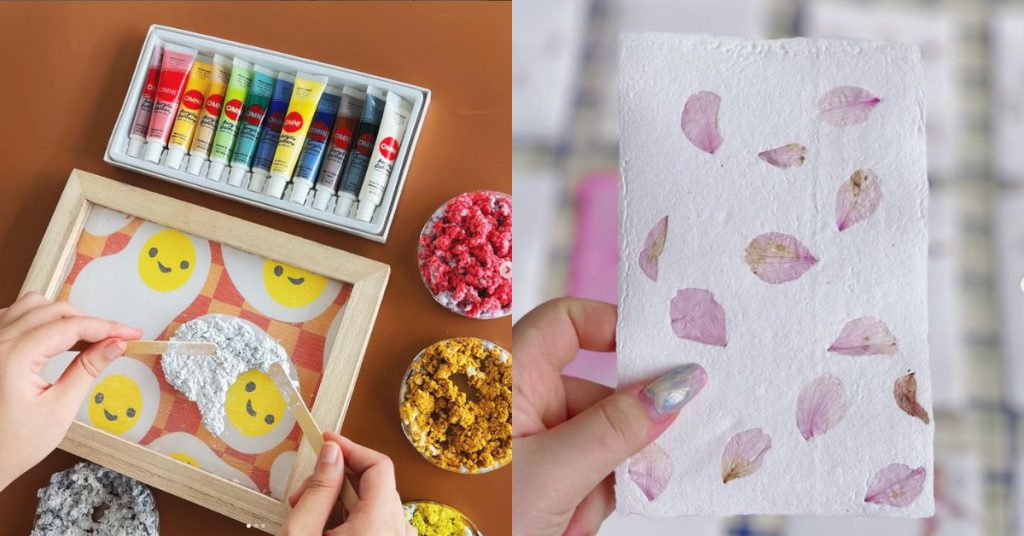
Combine that with a deep-rooted sense of responsibility to the family business, and his goal was to give paper waste a new lease on life.
Marcus’s journey began when he returned to the family business after the COVID-19 pandemic hit.
Print N Print had been running for over three decades, but Marcus saw room for growth. Specifically, he noticed the large amount of paper waste that came from everyday production—a common challenge in the printing industry.
The spark for change came when Marcus spent a year living in Japan, where he was inspired by the country’s efficient and minimal waste culture. This experience led him to question whether paper waste could be upcycled instead of discarded.
“With a bit of creativity, we can change the way we view and handle paper waste,” Marcus said. This thought became the foundation for Print N Matters, which officially launched in 2022.
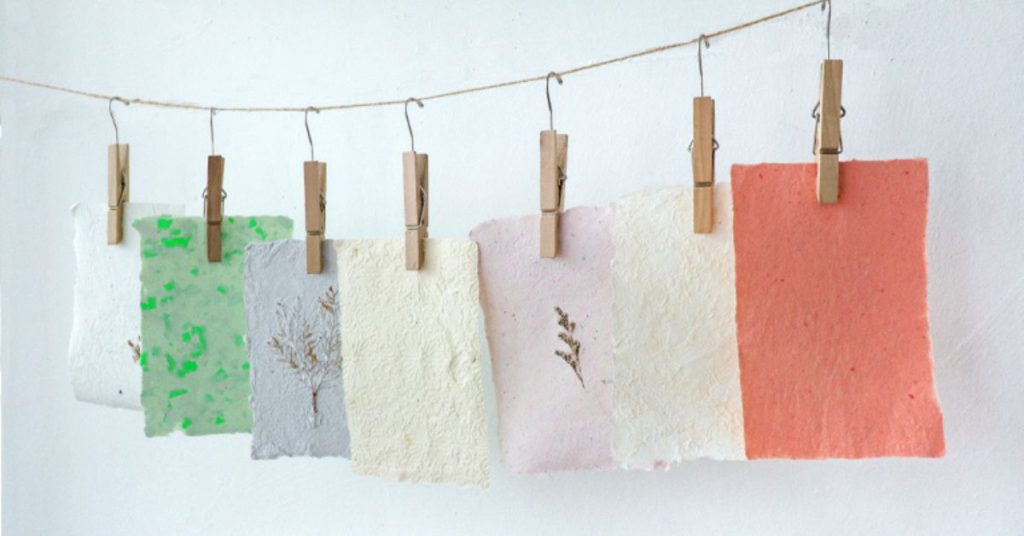
Workshops that matter
The idea started small. Marcus began offering workshops on paper upcycling as a way to engage with the community while reducing waste.
His first workshops were experimental, offered for free just to gauge interest. But to his delight, the response was overwhelming. People were keen to learn how to transform offcuts from his family’s factory into beautifully crafted stationery and paper products.
Marcus explained, “It started with families and couples during the pandemic, but after that, I began to pivot towards corporations and schools.”
Today, Print N Matters offers workshops that range from papermaking to creating planners from recycled materials, catering to a wider audience.
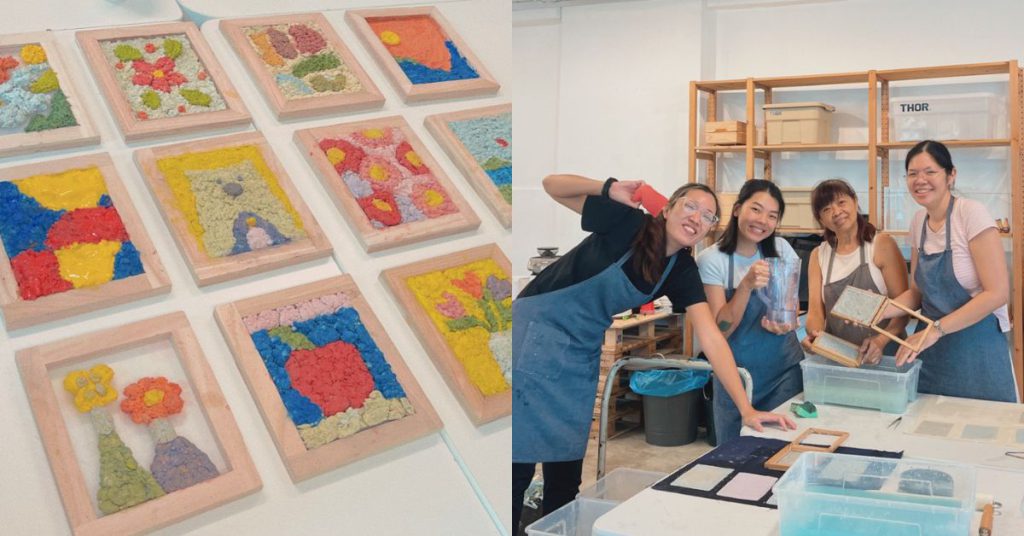
Corporate collaborations have also become a big part of the business. Marcus has partnered with over 40 organisations, including names like KPMG and PSA, to run team-building workshops focused on sustainability. He has even collaborated with brands like The Body Shop, transforming their paper bags into handmade paper for events.
One of the standout offerings? A seed paper-making workshop that allows participants to create plantable paper embedded with seeds. It’s one of the most popular activities, blending sustainability with creativity in a way that leaves a lasting impression.
The challenges of a second-generation entrepreneur
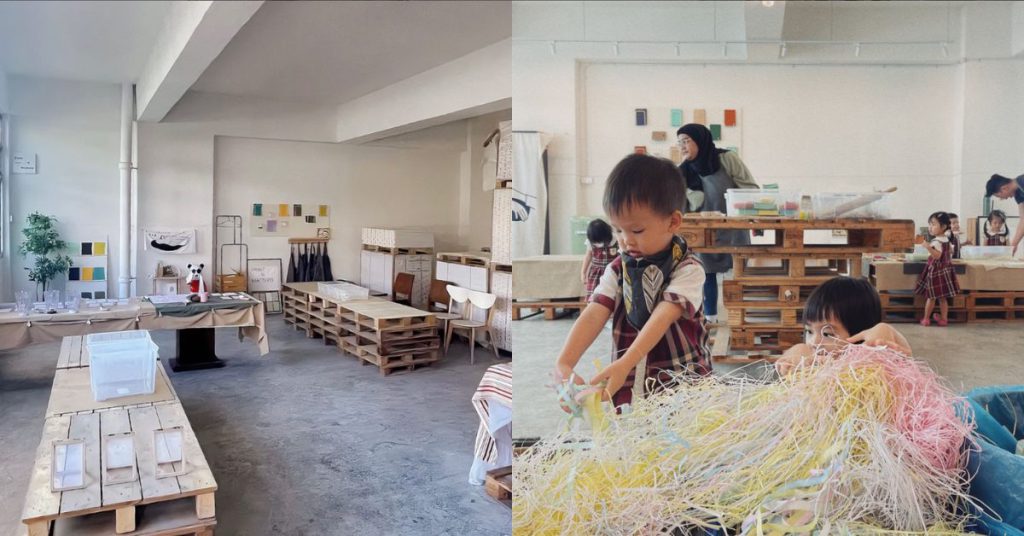
While Print N Matters is now stable, Marcus admitted the journey wasn’t always easy. As a second-generation business owner, he had to balance tradition with new ideas.
“I really had to earn my place and build respect with the older folks in the company,” he shared, recalling how he initially broke the ice by buying kopi (coffee) for the factory workers. “I didn’t want to be seen as just the owner’s son who took over.”
There’s also the tension between running two businesses that, while related, serve different audiences. Print N Print caters to more traditional clients, while Print N Matters focuses on younger, more eco-conscious customers.
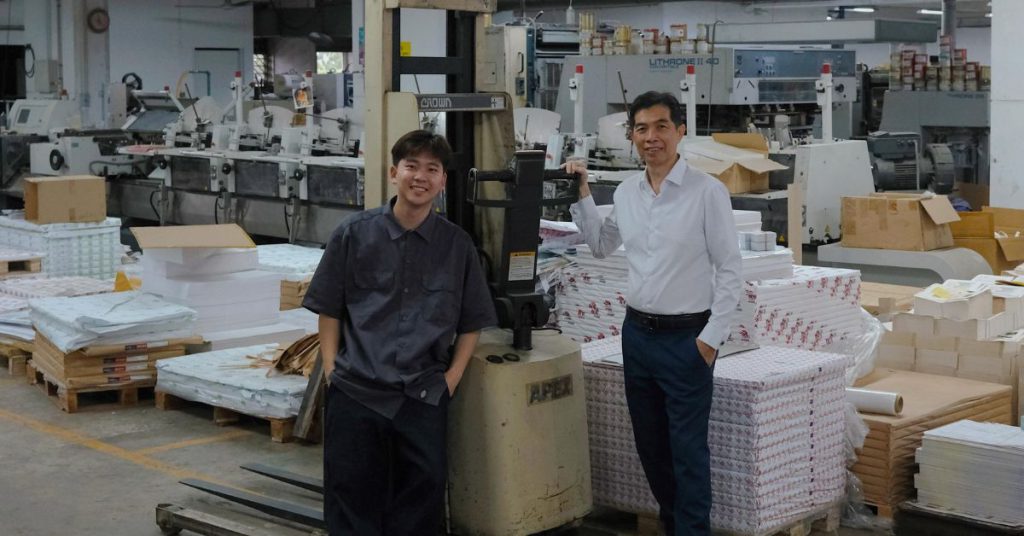
“I have to adapt my leadership style,” Marcus explained. With Print N Print’s older, more experienced team, he takes a more structured approach. But at Print N Matters, where Gen Z staff are the norm, the atmosphere is more collaborative and flexible.
“I want to build strong relationships with my teams. I might be the boss, but I also want to be approachable,” he added.
Creating a sustainable future
Sustainability isn’t just a buzzword for Marcus. It’s at the heart of everything he does with Print N Matters.
“I want to inspire both individuals and companies to think more consciously about the environmental impact of their choices,” he said. But Marcus is also realistic. “You can’t force people to change. It has to come from within.”
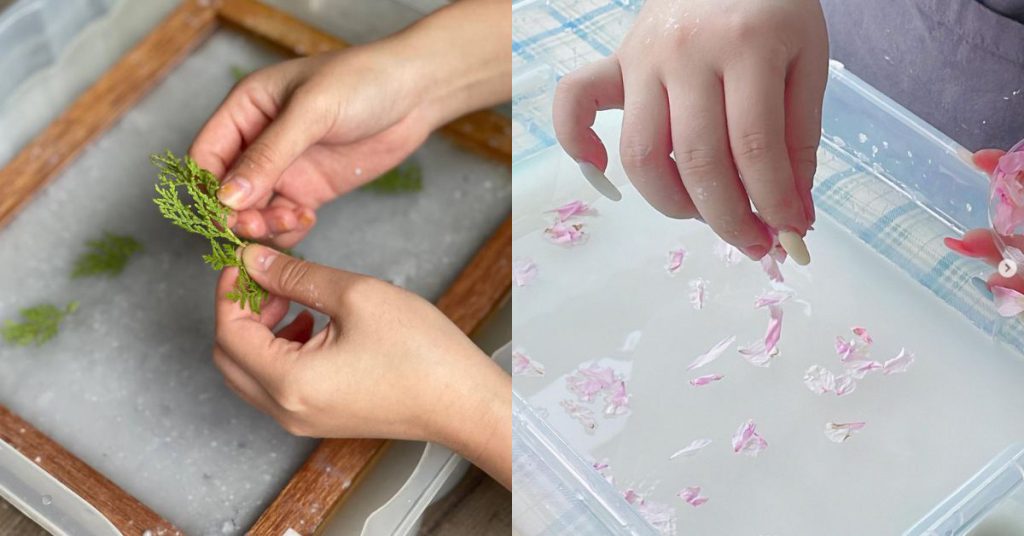
For Marcus, part of leading the sustainability charge is making sure that his business practises what it preaches.
Print N Matters primarily sources the materials for their workshops from paper offcuts in the family’s factory. Not only that, a local florist who supports the upcycling effort provides the dried flowers used to decorate the paper.
It’s this attention to detail that has won Print N Matters a loyal following. The business has also garnered over 4,000 Instagram followers and grown its corporate workshop sign-ups from just 10 participants to over 500, said Marcus.
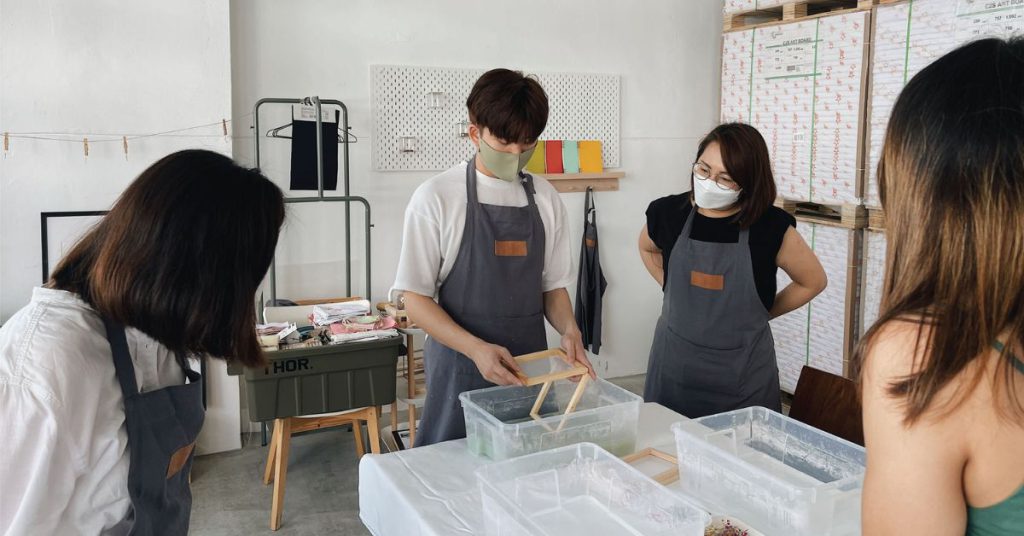
Looking ahead, Marcus has big plans for expanding Print N Matters. He’s already hosted over 50 workshops in schools and institutions. These workshops are more than just hands-on crafting sessions—they’re educational experiences that teach participants about the importance of reducing waste.
One of Marcus’s proudest achievements is launching THE WORKSHOP MARKET®, a quarterly event that brings together local makers and creators for workshops, sales, and collaboration.
“It’s amazing to see people come together to learn and share their skills,” Marcus shared. “The whole idea is to build a community around sustainability and craftsmanship.”
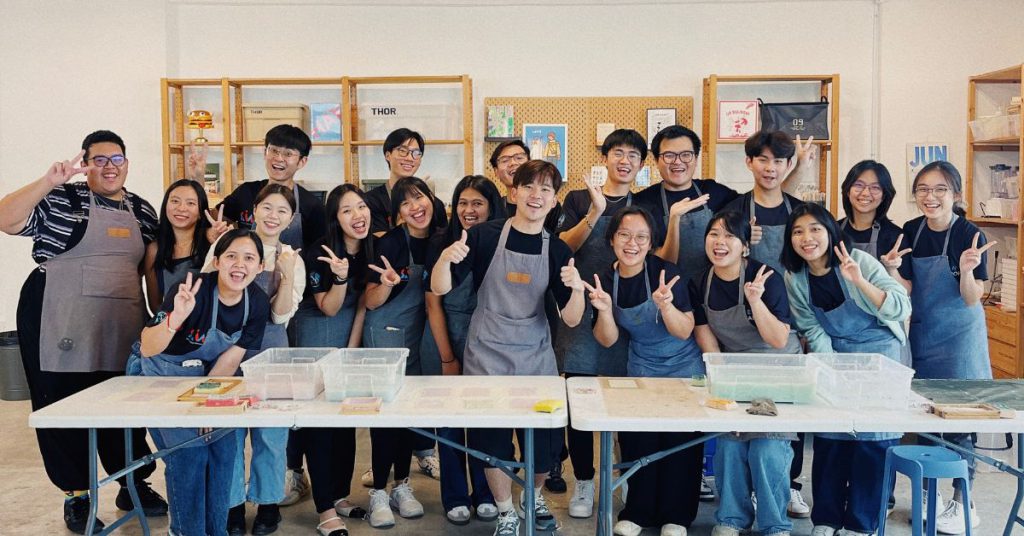
This sense of community is what drives Marcus forward. “Ultimately, I want Print N Matters to be a space where people not only learn new skills but also connect with others who share a passion for sustainability.”
- You can learn more about Print N Matters here.
- Read other articles we’ve written about Singaporean startups here.
Also Read: 5 scenarios in which you would appreciate having the reliable ASUS Vivobook 16 for work
Featured Image Credit: Print N Matters
This one ingredient is how these M’sians plan to take on bread giants with their own brand
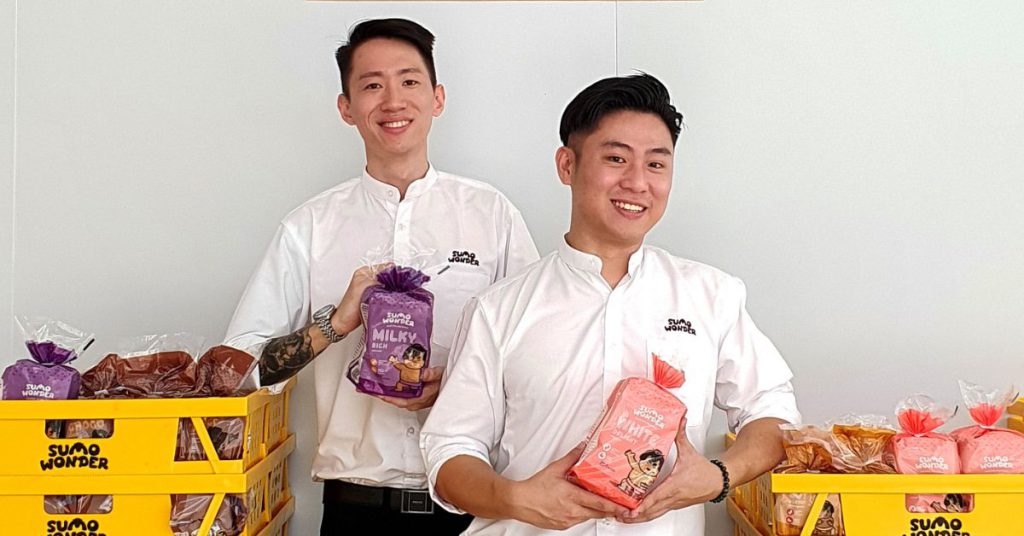
Bread loaf brands like Gardenia and Massimo reign supreme in the saturated market. Yet, there’s a new contender that’s not just trying to get a slice of the market but to bake a whole new one.
That’s Sumo Wonder, a quirky and nutritious bread brand started by Luiz Ong and Nicholas Tiong, two university friends and best bros from Kota Kinabalu, Sabah, who now call KL home.
It’s easy to dismiss it as just another sandwich loaf brand, but the founders are putting it forward as a healthier yet fun alternative to the world of bread.
Their secret ingredient? Okara, a nutrient-rich by-product of soy milk production.
Uncomplicated bread
The duo’s journey into the bread business wasn’t something they initially planned. After completing their Master’s in Architecture, Luiz managed a burger manufacturing facility in Kedah, while Nicholas pursued his architectural career in China.
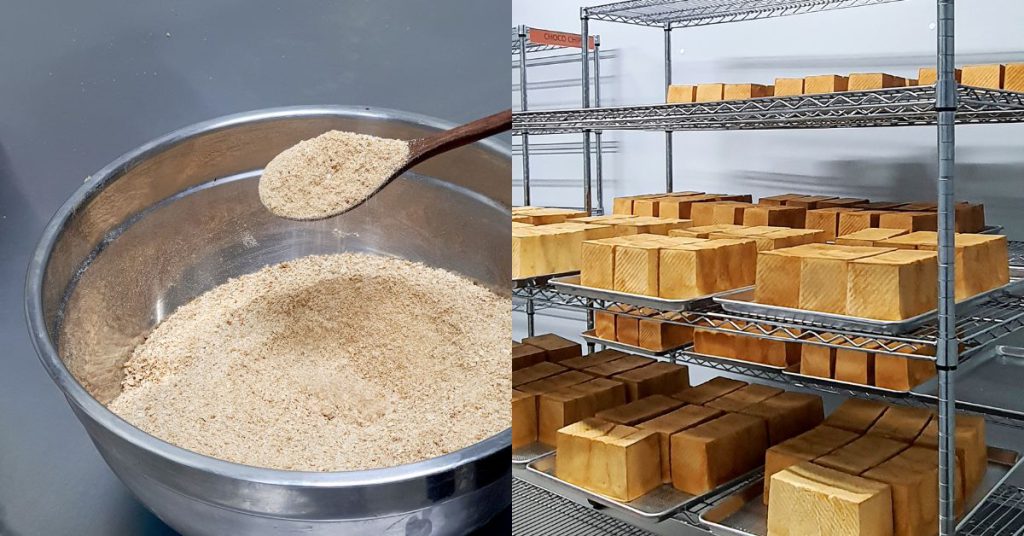
But the pull towards entrepreneurship was strong. Coming from business-savvy families, their leap into the world of breadmaking seemed like a natural progression, especially with Luiz’s exposure to the commercial bread and tofu skin manufacturing industry where he learnt of okara.
Luiz’s knowledge of this underutilised ingredient sparked the idea to incorporate fine-grain okara into their bread, making it high in protein and fibre but low in calories.
“We did a lot of research on how to use fine-grain okara in food, and we figured that the everyday sandwich loaf would be the best way for more Malaysians to benefit from this superfood,” they shared.
“We want our bread to be accessible to people from all walks of life. Bread shouldn’t be complicated.”
Why okara?
Okara is typically discarded in the soy milk production process, despite retaining up to 55% of its fibre and 37% of its protein, the founders shared.
It’s a nutritional powerhouse that’s often overlooked, but not by Luiz and Nicholas.
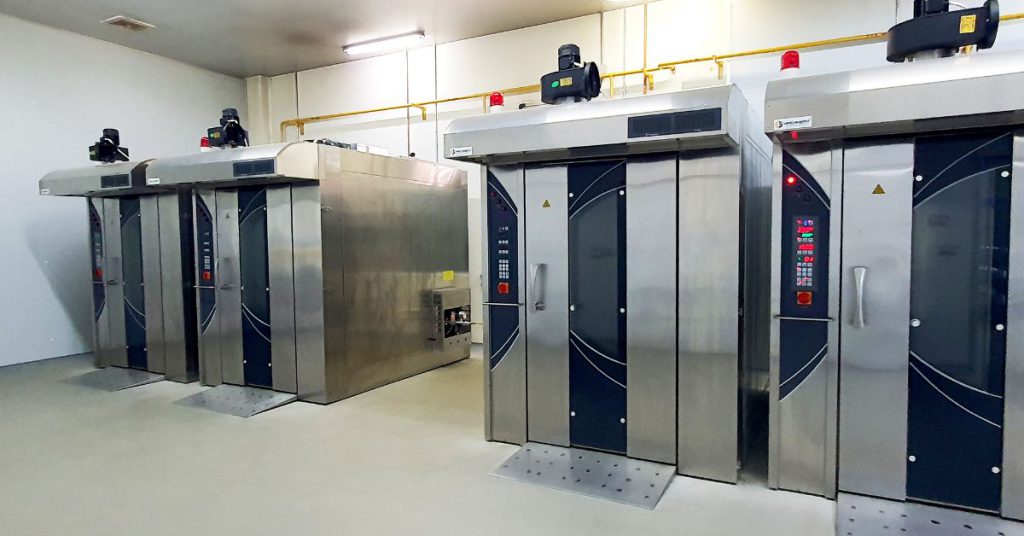
They’ve seen how okara is being used in muffins, cookies, granola, and breads in places like Japan, America, and Singapore, and knew they wanted to introduce it to the Malaysian market.
And so, after two years of countless kitchen experiments, trying different combinations to perfect the taste and mouthfeel, Sumo Wonder was born. But this wasn’t just about creating a product—they were also on a mission to change how people perceive healthy bread.
The sandwich loaf market in Malaysia is rather stagnant, and the term “healthy bread” often conjures images of bland, tasteless food that’s more chore than enjoyment, they said.
“We want our bread to be healthy yet tasty and fun, with taste and fun taking centre stage,” Nicholas said. “We want to be the healthier bread brand for people who don’t like to eat healthy.”
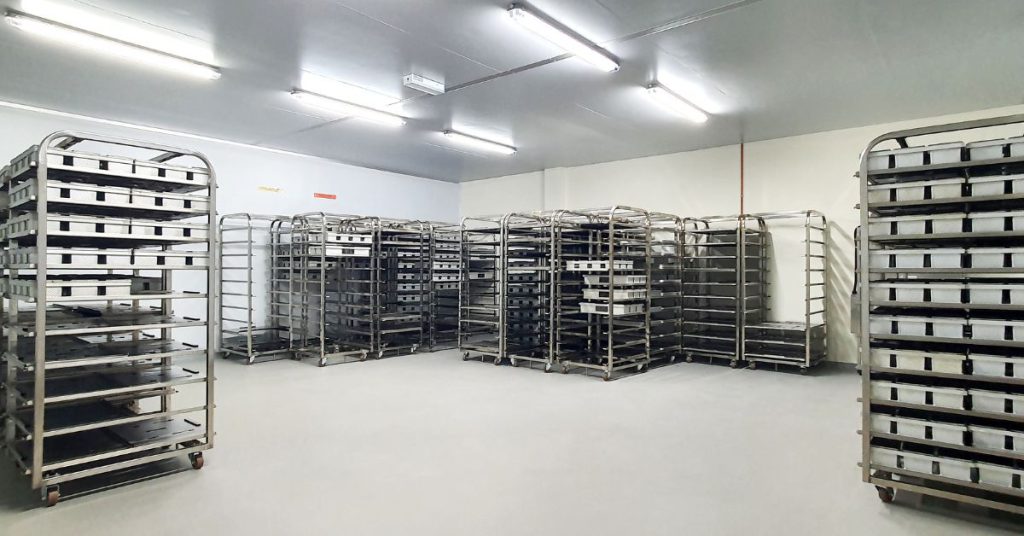
Sumo Wonder’s bread varieties are designed to be appealing to kids and the young at heart. Their flavours, from Vanilla Dream to Choco Chip, aim to delight the taste buds without compromising on nutrition.
“People won’t even know they’re consuming more fibre and protein than usual,” they added with a grin.
An art and science
Sumo Wonder’s operations are based in Rawang, where they bake and distribute their bread using their own fleet of trucks to grocers across Klang Valley.
They’ve partnered with BilaBila Mart and Memizooozoo, tapping into their network of 50 locations to reach consumers who are adventurous and health-conscious.
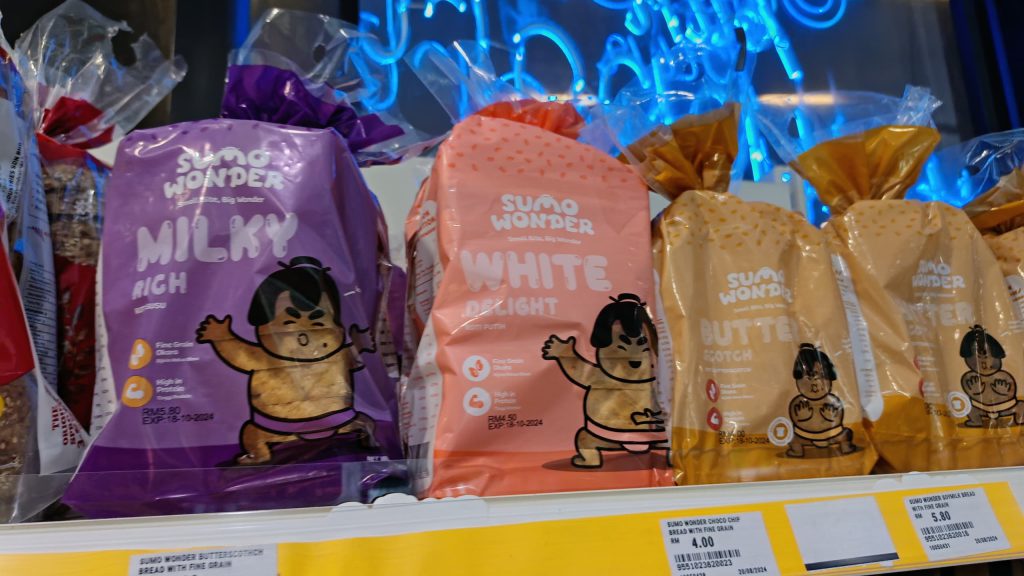
“We’ve been very fortunate to find supportive partners who are willing to take a chance on new brands like us,” Luiz shared. “We ensure that our bread meets our high standards for smell, taste, flavour, and mouthfeel.”
Their process of incorporating okara into their bread is meticulous. Fresh okara is collected from certified suppliers, dried, ground into powder, and stored in chillers for a longer shelf life.
Every batch is tested to ensure it’s safe for consumption, adhering to strict standard operating procedures to maintain quality.
Challenges and future plans
Transitioning from kitchen to commercial production has been no small feat. “It’s completely different once you move to a factory. Everything is to be re-examined—from the recipe to the ingredients to baking time,” they explained.
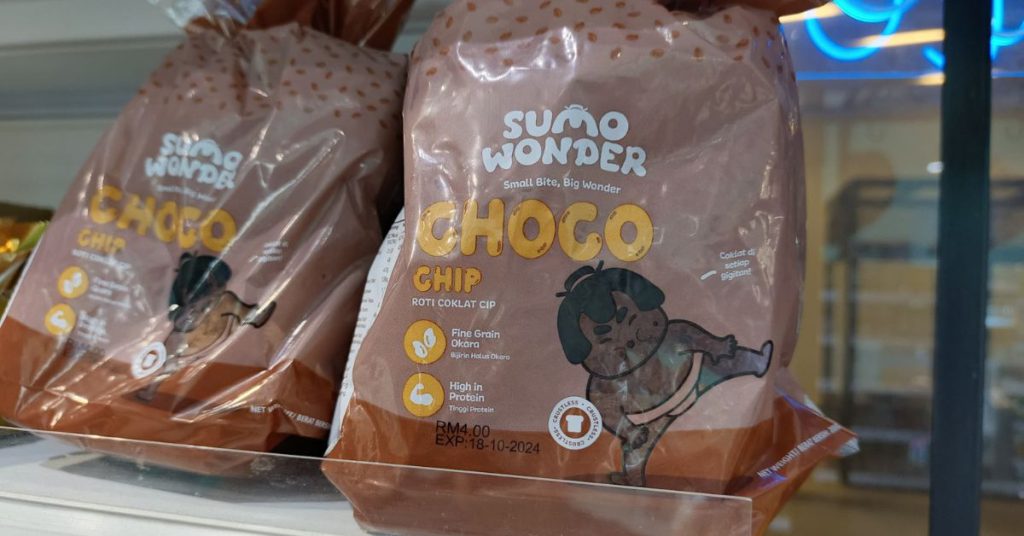
Fortunately, support from suppliers and industry veterans helped them refine their operations.
Their biggest challenge now is gaining retail access. “Sandwich loaves are heavily reliant on physical locations. We’ve been lucky with our partners, but we still have a long way to go to get Sumo Wonder on more shelves,” they acknowledged.
To fund their venture, Luiz and Nicholas are using their own savings, putting 100% skin in the game. “We really believe in the concept and our brand,” they said.
“We’ve been sharing our breads with friends, family, and their kids for some time, and have tweaked our recipes according to their feedback.”
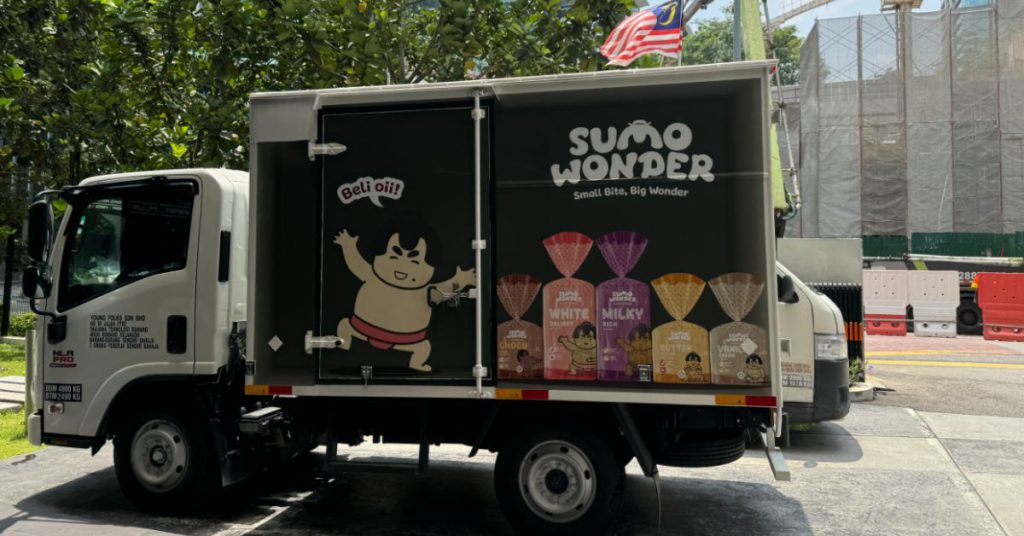
Looking ahead, Sumo Wonder plans to expand beyond sandwich loaves. They’re experimenting with cookies, buns, and rolls, ensuring that even those who don’t typically buy sandwich bread can experience their fun flavours and branding.
Sumo Wonder’s commitment to sustainability doesn’t stop with okara. They’re looking to work with food producers to rescue “ugly” fruits and vegetables that are rejected from supermarket shelves. These produce items, while perfectly edible, often go to waste simply because they don’t meet aesthetic standards.
“We want to play our part and contribute to the circular food ecosystem in Malaysia and the region,” Luiz said. “Sustainable and nutritious food is essential for food security. If we can minimise food loss and repurpose by-products into healthy foods, it’s a win-win.”
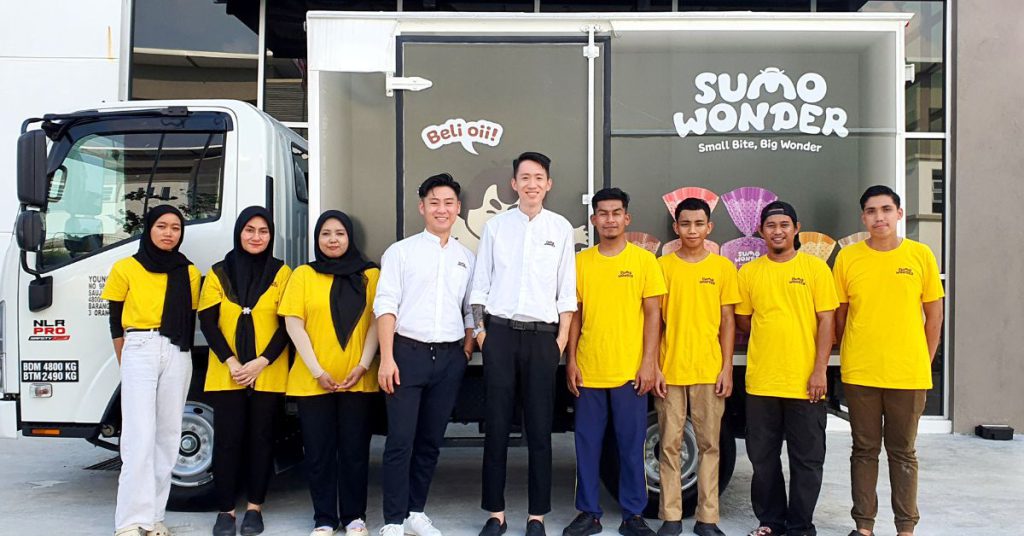
At its core, Sumo Wonder is a passion project turned business. It’s about making bread that’s not just good for you but good to eat. In a market dominated by giants like Gardenia and Massimo, it’s refreshing to see a brand that’s bringing a bit of whimsy, health, and sustainability to the table.
“We want to partner with food manufacturers and cafes to share more about the benefits of fine-grain okara and sustainable foods,” they said. “We think this is an important mission and will move Malaysia along the future of food.”
- You can learn more about Sumo Wonder here.
- Read other articles we’ve written about Malaysian startups here.
Also Read: A ClassPass competitor? This new app lets you access nearly 300 fitness studios in M’sia.
Featured Image Credit: Sumo Wonder
M’sian team turns PPR spaces into cloud kitchens for women to become foodpreneurs
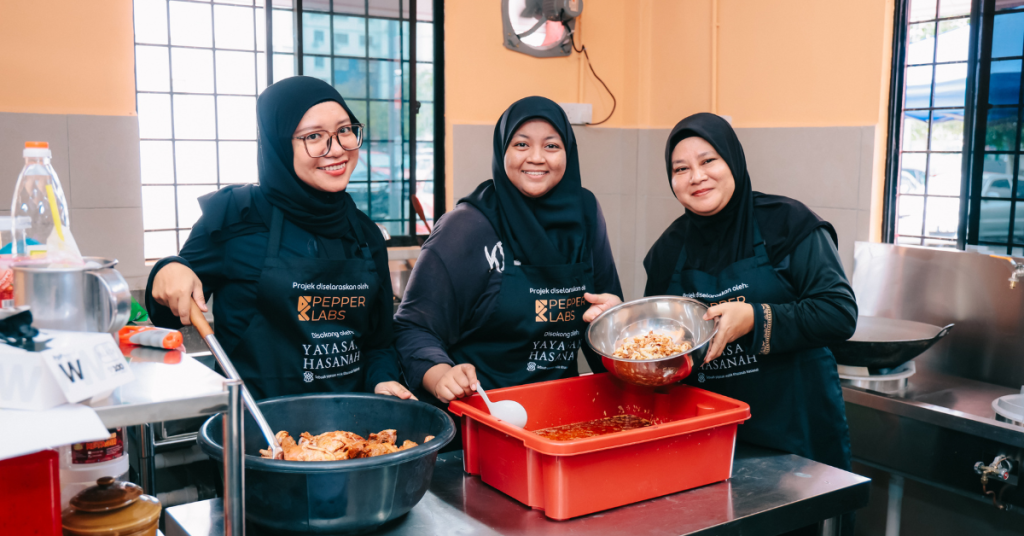
[Written in partnership with Pepper Labs, but the editorial team had full control over the content.]
Entrepreneurship is an extremely challenging endeavour, even for those with relatively clear paths.
But for those in marginalised communities, this path is riddled with obstacles and barriers.
For instance, women living in PPR (Program Perumahan Rakyat) flats, especially those aged under 45, face barriers such as limited access to employment, childcare responsibilities, and low formal education levels. Many of these women are also single mothers or the primary caregivers in their families.
Because of these challenges, even if these women may have entrepreneurial desires, it’s very difficult to materialise them.
That’s where Dapur Digital comes in.
Not your typical cloud kitchen, Dapur Digital builds its infrastructure within PPR flats, empowering the women who live there to achieve financial independence while gaining critical entrepreneurial and digital skills that set them up for long-term success.
Meet Pepper Labs
The team behind Dapur Digital is a social enterprise by the name of Pepper Labs.
Pepper Labs was founded by a group of young professionals in 2015, with the goal of driving social transformation through sustainable economic empowerment and inclusive growth.
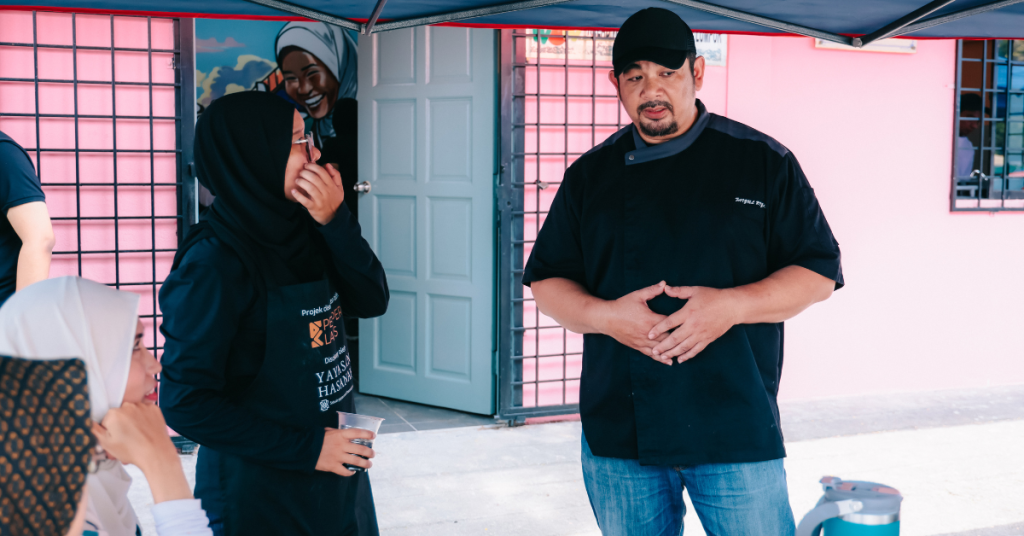
The founding team comprises Ir. Kuhan, alongside three other directors. Ir. Kuhan has extensive experience of over nine years in social entrepreneurship, with expertise particularly in capacity-building and empowering marginalised communities.
Today, Pepper Labs is helmed by CEO Gevi Ananda Roe. She shared that the social enterprise’s initiatives have become a beacon of hope for these marginalised communities, enabling long-term change through entrepreneurship.
And one key way that they’re doing this is through Dapur Digital.
Feeding two birds with one scone
Dapur Digital was conceived in 2022, during the challenging recovery phase after the COVID-19 pandemic.
“Low-income communities, particularly those in PPR flats, were hit hardest,” Gevi pointed out.
Thus, Pepper Labs collaborated with Malaysia’s Ministry of Finance and Yayasan Hasanah to launch Dapur Digital as part of a broader strategy to economically empower women through food-based digital entrepreneurship.
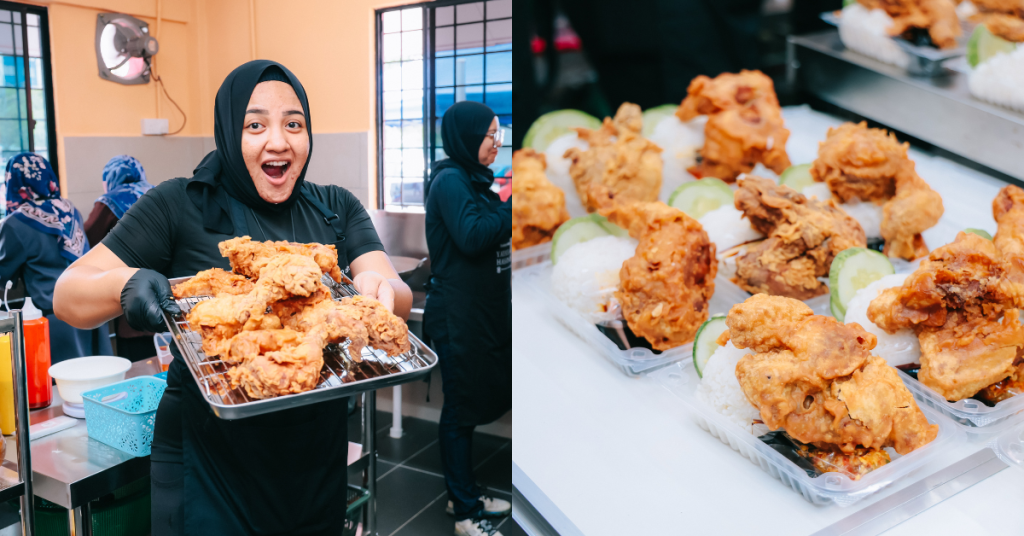
The cloud kitchen offers the women in PPR flats training and infrastructure to allow them to launch small food businesses.
At the same time, Dapur Digital’s cloud kitchens would help repurpose unused, under-utilised, or dilapidated government buildings into hubs of economic activity.
Using these spaces also means the women don’t have to leave their PPR communities, and thus are able to care for their families while being economically active within the PPR complexes.
“This model, although not initially requested by the community, aligned perfectly with their needs and has since become a cornerstone of sustainable income generation,” Gevi shared.
Currently, there are five Dapur Digital kitchens operating across five different PPR flats. A total of 50 women—including 17 youth and eight single mothers—from these five PPR communities are part of this initiative.
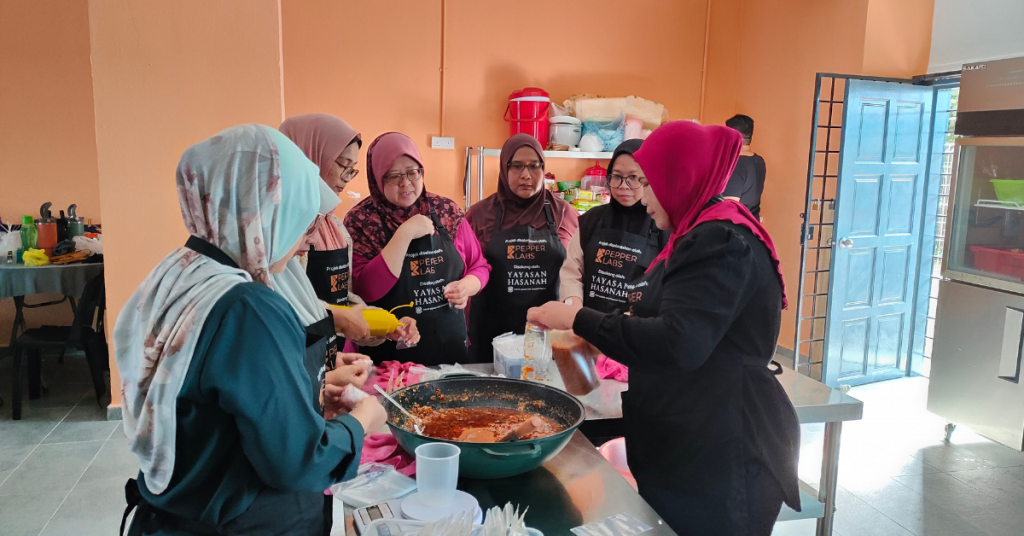
The cloud kitchens are fitted with state-of-the-art cooking equipment, a conducive workspace, Wi-Fi, and computers.
According to Gevi, there are several local brands under Dapur Digital, many of which were established specifically for this initiative. Others are existing small businesses that have evolved with the social enterprise’s support.
“We encourage participants to develop their own brands, giving them full ownership of their products and their business identity,” the CEO said.
100% of the sales revenue generated by the women in Dapur Digital goes directly to them. The women later allocate a small percentage to cover operational costs such as kitchen maintenance and delivery platform fees.
Dapur Digital has a monthly sales target of RM10,000 for its businesses. If that target is not met, Pepper Labs reviews the participants’ strategies, offering additional guidance and training towards growth hacking.
Going beyond the surface
Give a man a fish, and you feed him for a day. Teach a man to fish, and you feed him for a lifetime.
Understanding this adage, Dapur Digital goes beyond just one-off help for women to start their businesses.
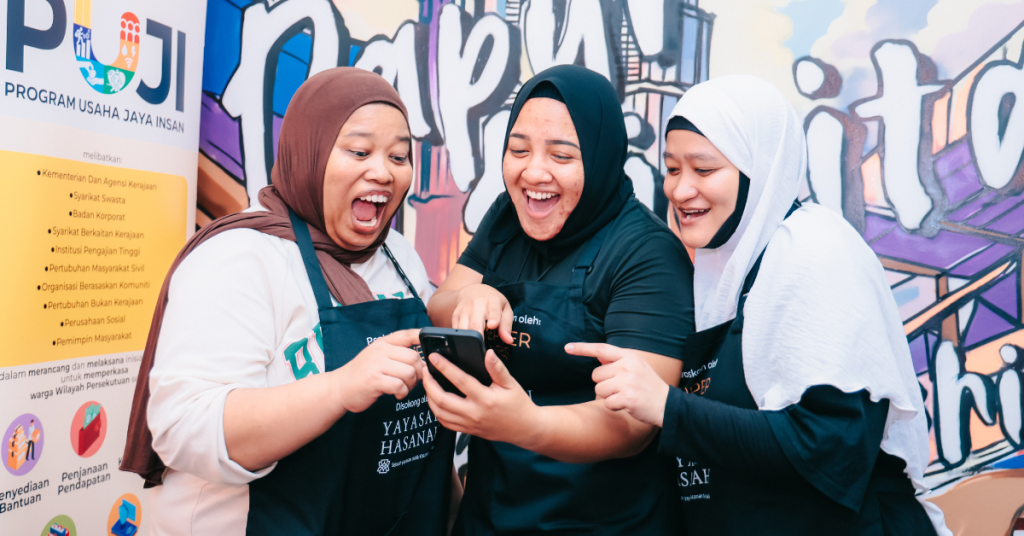
On top of the two years of rental-free access to the cloud kitchen facilities, Dapur Digital has programmes to ensure that the businesses are sustainable and scalable.
For one, the programme dishes out professional certificates. Through Dapur Digital, participants will receive professional certification in food technology through a micro-credential module codeveloped with UNITAR.
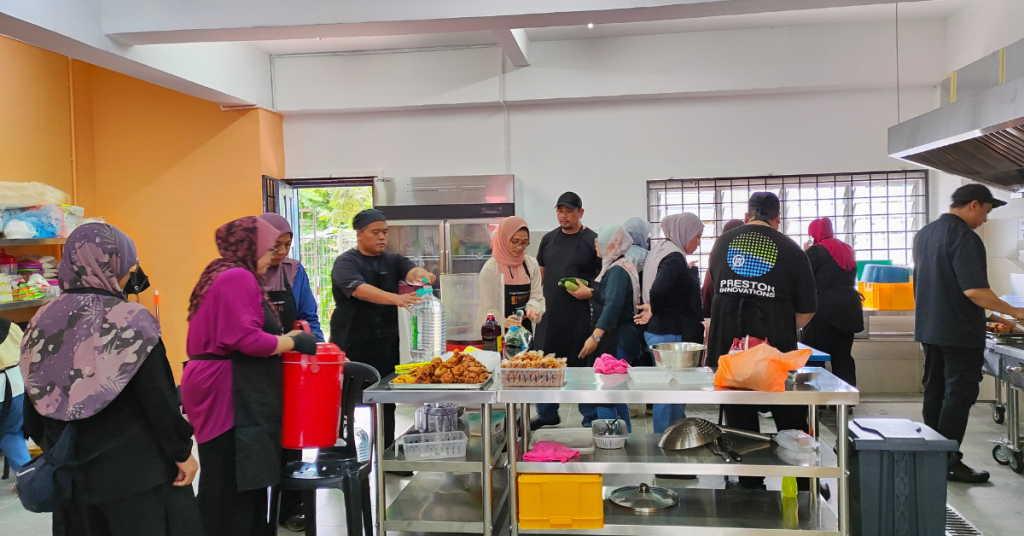
Gevi shared that Dapur Digital is also offering the first-ever micro-credential in cloud kitchen management in Malaysia.
The training provided under this micro-credential module covers several areas, including:
- Introduction to Cloud Kitchens
- Operations Management for Cloud Kitchens
- Financial Planning for Cloud Kitchens
- Marketing Strategies for Cloud Kitchens
“The course is designed to provide practical knowledge and skills to manage and grow cloud kitchen businesses effectively,” Gevi said. “Each participant will be graduating from UNITAR with a micro-credential, advancing their education level which is mostly SPM qualified.”
Each kitchen will receive guidance and mentorship from professional chefs, ensuring high standards of food production.
Reaching women in every state
With a focus on impacting PPR housing in urban areas, Dapur Digital plans to expand to 20 cloud kitchens by 2025.
“Our long-term vision is to replicate this model across Malaysia, with the hope of reaching women in every state,” Gevi said.
In order to achieve the goal of creating a sustainable, scalable model that empowers women in underserved communities to become financially independent entrepreneurs, Dapur Digital needs various stakeholders to play their part.
For one, there’s the collaborations with government institutions such as the Ministry of Finance, Department of Federal Territories, Yayasan Hasanah, Kuala Lumpur City Council among others.
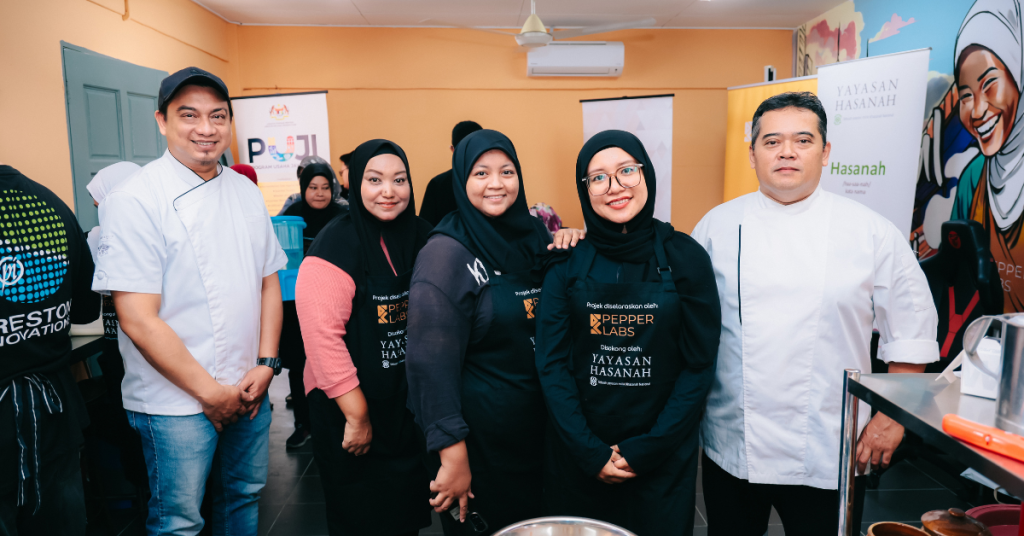
The programme also strives to attract corporate and mass consumer traffic through platforms like Grab, foodpanda, and Shopee Food, driving more business to these entrepreneurs.
“This initiative highlights the power of public-private-philanthropy partnerships in driving real economic and social impact,” Gevi pointed out. “Dapur Digital would be a bankable social brand that is a conduit for corporates to achieve ESG aspirations.”
Dapur Digital also offers team building opportunities within their PPR complexes.
Offering good food with a good cause, Dapur Digital’s kitchens can be ordered from online, while corporates can support them through catering and meal boxes.
- Learn more about Pepper Labs here.
- Learn more about Dapur Digital here.
- Read other articles we’ve written about Malaysian startups here.
Also Read: Sidec aims to nurture 300 startups and SMEs to grow Malaysia’s GDP, here’s the game plan
Featured Image Credit: Pepper Labs